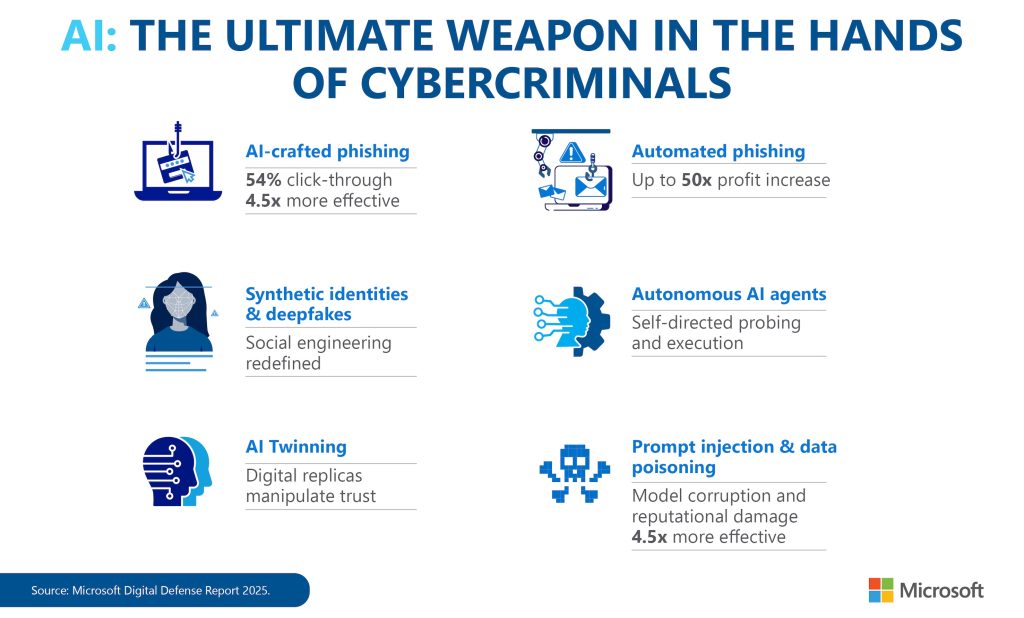Microsoft Digital Defense Report 2025 paints a sobering picture of the global cyber landscape, warning that Africa has become a key testing ground for sophisticated digital attacks. Drawing insights from over 100 trillion daily security signals, the report reveals a sharp rise in cybercriminal activity particularly in North Africa and highlights the growing use of artificial intelligence by both nation-state and criminal actors.
“Africa isn’t just a target; it has become a proving ground for the latest cyber threats,” said Kerissa Varma, Microsoft’s Chief Security Advisor for Africa. “Attackers are now leveraging AI to craft phishing campaigns in local languages, impersonate trusted individuals, and exploit the very platforms we rely on.”
According to the report, 80 percent of the incidents investigated by Microsoft involved data theft for financial gain. Business Email Compromise [BEC] emerged as the most damaging form of attack, responsible for 21 percent of successful breaches, compared to ransomware at 16 percent. South Africa was identified as a global hub for BEC infrastructure and money-mule recruitment, with Nigerian-linked actors operating transnational schemes.

The report also documents a 195 percent surge in AI-generated identities used to bypass security systems, as well as a growing trend of multi-stage attack chains combining technical exploits, social engineering, and platform abuse. AI-enhanced phishing now achieves click-through rates more than four times higher than traditional attempts.
Varma urged African business leaders to rethink their approach to cybersecurity, warning that “trust alone is no longer enough.” She emphasized the need for proactive, AI-driven defenses and stronger cyber resilience strategies. Microsoft’s Secure Future Initiative is part of the company’s global effort to help organisations strengthen digital safeguards amid this fast-evolving threat environment.






